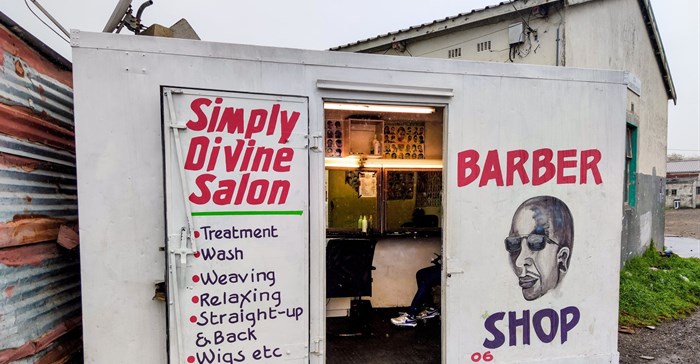






This is according to digital CX agency, Rogerwilco’s Township Customer Experience (CX) Report for 2023, developed in conjunction with market research company Survey54.
This comes as residents adapt to a number of challenges including high unemployment, power cuts, poor service delivery and rising food prices.
Township-based entrepreneurs are also faced with problems such as poor infrastructure, market access and networking, regulatory barriers, crime, limited training and a lack of access to capital.
The Township CX Report, now in its third year, conducted a survey of over 1,000 township residents across South Africa. The aim was to gain valuable insights into their spending and saving behaviors as well as to identify the brands that hold appeal in the market.
Mongezi Mtati, senior brand strategist at Rogerwilco, says, "We're seeing spaza shops adopting strategies such as repackaging products into smaller sizes and offering weigh-and-pay options. These approaches cater to customers' budgets and their current need for value."
Some of these ideas, which have always existed, include the Gqwalisa method where consumers can buy small amounts of food such as two eggs, or a cup of sugar. A second example that has been seen over the past year is informal fast food spots such as kota and vetkoek business owners reselling used oil to their budget-conscious consumers.
Founder and CEO of YeboFresh Jessica Boonstra says the first response of established brands to a declining market in the township tends to be an increase in marketing when the issue is something as simple as a pack size or narrative.
“When we started the business a few years ago the response was that the township market is too difficult and too poor. Now we are seeing the township market as the next frontier, and brands understanding the market. We are working with brands doing research and surveys, and have a wealth of buying patterns that we can share,” she says.
According to the Report these innovative plans by spaza shop owners are paying off, as 25% of respondents reported spending over 50% of their income within the township. Moreover, there has been a rise in patronage of local spaza shops, with 51% of respondents claiming to shop at spazas daily — an increase from 44% in 2022.
To succeed in this market and win the hearts and minds of customers, brands may need to consider collaborating with spaza shops. Close partnerships with these businesses will allow brands to increase their basket sizes as customers top up their supplies throughout the month - Mtati
Despite the increasing participation of men in stokvels, women maintain a strong presence and continue to exhibit a greater inclination towards saving within this framework. Their dedication to saving highlights the valuable role stokvels play in fostering financial resilience and empowering women in their pursuit of economic stability.
The Report states: "The 18-24 age group has seen a notable increase in stokvel adoption from last year’s 37% to 44% this year. This indicates a clear trend in younger, more tech-savvy people opting for this group-saving method over other methods, such as banking."
Mtati says that innovative solutions such as the stokvel management app StokFella, combined with the rise of fintech solutions, promote financial inclusion and alternative savings methods among South Africa’s youth.
The growing support for local businesses within township communities extends to the fashion industry. According to the latest survey, township consumers are increasingly favoring home-grown fashion brands.
In 2022, a significant 75% of respondents expressed a stronger inclination to purchase local fashion brands, particularly if they were easily accessible through store cards at their preferred shops. This year, the survey delved deeper into the actual expenditure on local fashion.
The survey revealed that approximately 17% of respondents reported spending between R1,000 and R2,000 on local fashion in the past year, with nearly six percent investing over R3,000 in home-grown fashion during that period.
Leading the pack in terms of demand is Bathu, a popular footwear brand, which garnered purchases from seven percent of respondents within the last 12 months. Not far behind are Drip, with 4.4% of respondents choosing the brand, and Amakipkip, capturing the interest of just over 1% of respondents. In comparison, 6.3% of respondents opted for international fashion brands.
This trend highlights the increasing preference for local fashion and the support township consumers are showing for home-grown talent in the industry.
The internet plays a pivotal role in South African townships, providing education, information, and income opportunities. Last year, 70% of respondents made online purchases, while this year's survey showed that 60% engaged in online sales or remote work.
The Report stated: "In our 2022 study, we found that 70% of respondents had made an online purchase. This year we flipped the question around to find out how many were using the internet to sell rather than to buy. The response was revealing, with just over 60% of respondents saying that they, or someone they know, have sold products and services online, or begun working online.
"A detailed drill into the data showed that there was no gender skew, with men and women equally likely to trade online. The self-employed (70%) and students (67%) were the most likely to turn connectivity into money, but even amongst the unemployed, a full 57% were trying to hustle on the internet or knew of someone who was."
Local brands such as Zulzi and YeboFresh have been able to adapt to the specific needs in townships. Zulzi facilitates instant loans while YeboFresh allows bulk orders via WhatsApp for businesses.
The Township CX Report emphasises the importance of brands actively engaging with and establishing a presence in township communities. As residents prioritise value over brand loyalty and support local businesses, brands need to connect and cater to their needs to thrive.
